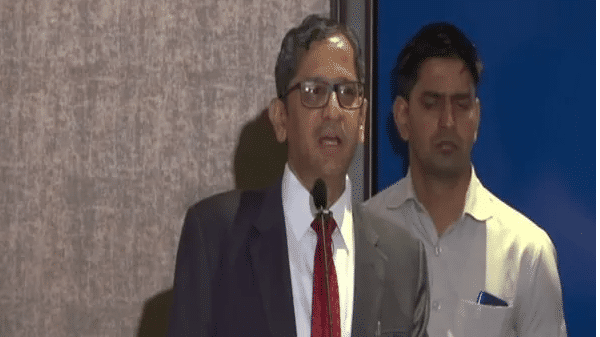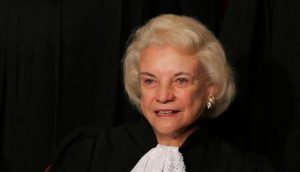Justice Nuthalapati Venkata Ramana, also known as NV Ramana, has been appointed as the 48th Chief Justice of India (CJI) by President Ram Nath Kovind on Tuesday. He will take charge from April 24, 2021. The current Chief Justice of India, Sharad Aravind Bobde, is due to retire on April 23 this year.
Justice Ramana was born into a family of farmers in Ponnavaram village, Krishna district of Andhra Pradesh.
He is the senior-most judge in the Supreme Court after Chief Justice Bobde. He was recommended by CJI Bobde to the Government of India as his successor in March. Justice Ramana, born on August 27, 1957, will have a year and four months long tenure, till August 26, 2022.
He got listed as an advocate on February 10, 1983. As a lawyer, he practised at Andhra Pradesh High Court, Central Administrative Tribunal, AP State administrative tribunal and the Supreme Court in civil, criminal, labour, service and election matters.
Also Read: India, US agree to re-establish Homeland Security Dialogue
He got elevated as a permanent judge of the Andhra Pradesh High Court in 2000 and was the acting chief justice of AP HC from March 10, 2013, to May 20, 2013.
Justice Ramana served as Chief Justice of Delhi High Court for some time in 2013 and was later elevated as a judge in the Supreme Court of India from February 17, 2014.
Justices Ramana and Surya Kant in January this year, gave a landmark judgement, in which he said that the value of a woman’s work at home was no less than that of her office-going husband.
Also Read: Supreme Court loan waiver verdict: Five things you need to know
The justice has been a key part in many other landmark judgements including Md. Anwar v. State of NCT of Delhi (2020), Anuradha Bhasin v. Union of India (2020), Foundations for Media Professionals v. Union Territory of Jammu and Kashmir (2020), Jindal Stainless Ltd v. State of Haryana (2017).
In October last year, Ramana was accused of corruption by Andhra Pradesh Chief Minister YS Jagan Mohan Reddy. He alleged that Ramana and his relatives were engaged in relation to the acquisition of land in Amravati. The chief minister also accused him of attempting to destabilise the government.
Following the allegations, Ramana said publicly that judges nowadays have become “soft targets of criticism” in India.







